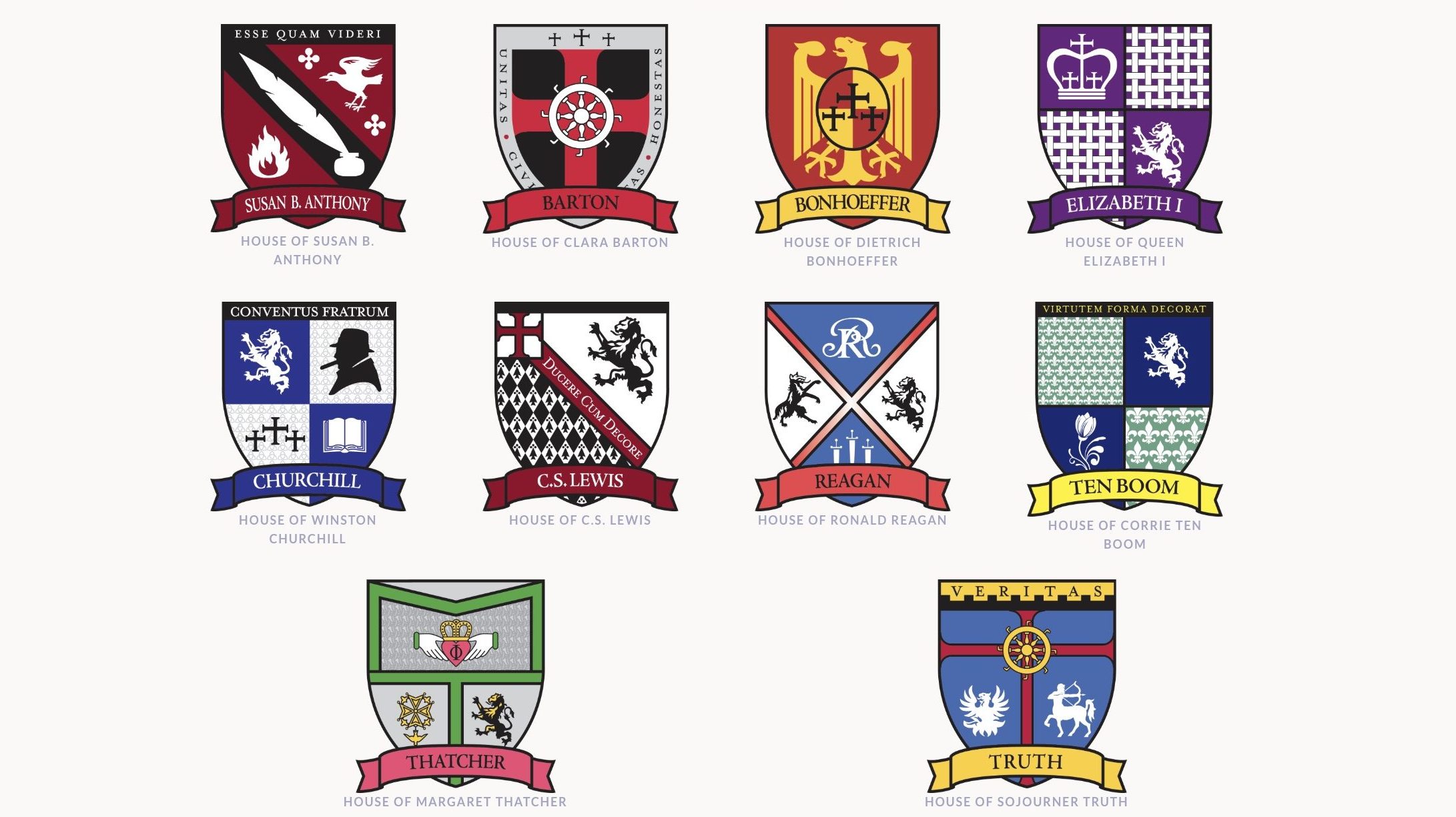Namesake Review Committee Begins Its Work of Institutional Self-Reflection
Dean Leedy says, “It’s worth our time to periodically examine how these namesakes contribute to the King’s mission and students’ formation.”

In the spring of 2019, The King’s College made plans to formally review the namesakes of the ten Houses to evaluate whether the namesakes that have served The King’s College for the last fifteen years are the ones to carry the campus through the next fifteen.
“I view this as a good exercise in institutional self-reflection, with no pre-scripted agenda,” says Dean of Students David Leedy. “Since the House System encompasses the entire student body, the historical leaders who give the ten Houses their names play a role in shaping students’ perceptions of what kind of character they ought to cultivate and what kind of life they should pursue. It’s worth our time to periodically examine how these namesakes contribute to the King’s mission and students’ formation.”
Students selected the original nine namesakes in 2004, with the House of ten Boom added in 2010. King’s seeks to discern in what ways the namesakes align or do not align with the College’s mission and values, and determine if the current namesakes should be retained or replaced.
President Tim Gibson says, “The mission of The King’s College remains unchanged, and, in this review process, we seek wisdom grounded in the truths of Christianity rather than blindly following whatever issues are currently in vogue. Our decision to review House namesakes is a far cry from student-led activism. Based on our biblical worldview, we know it is foolish to expect perfection from merely human heroes. It is appropriate that we reflect on whom we choose to elevate and whether those namesakes serve us well.”
To undertake this review process, Gibson convened a Namesake Review Committee comprising select faculty, staff, alumni, and the Student Body President, with Leedy as chair. The Namesake Review Committee (NRC) will meet through the fall 2019, and will submit formal recommendations to the President’s Cabinet in the spring 2020. The first meeting of the NRC took place on Tuesday, October 8.
Committee members were chosen for “their fair-mindedness, discernment, care for students, and commitment to the distinctives of the College,” says Gibson. The full list of NRC members is as follows: David Leedy, NRC Chair, non-voting except in case of tie; Koby Jackson (’20), Student Body President; Dr. Anthony Bradley; Dr. Kimberly Reeve; Dr. David Tubbs; Dr. David Talcott; Leticia Mosqueda; Jonathan Sheaffer (’12); Tyler Cochran (’17); and Rebecca Au-Mullaney (’15).
The NRC will receive additional input from a non-voting advisory panel: Sarah (Ferarra) Keenan (’12), president of the Alumni Association Executive Committee; and Kurtis Cochran (’07), founding president of the House of Reagan.
The views of the current students and alumni will be respectfully and thoroughly considered during NRC discussions. To express your thoughts to the NRC, the College recommends submitting comments in writing to the committee’s official email address: NRC@tkc.edu. Students, alumni, staff, and faculty may also communicate directly with NRC members; however, individual committee members will not divulge the committee’s deliberations prior to final recommendations being presented to the President’s Cabinet in the spring.
The NRC’s main goals are to identify areas of alignment and dis-alignment between the current namesakes and the College’s mission and values, and to articulate a list of qualifications for future House Namesakes.
As conversations continue about how we relate to our heroes, the College encourages a spirit of charity and patience on campus and in the wider alumni community. Leedy says, “As a College under the Lordship of Jesus Christ, we are committed to approaching this conversation with thoughtfulness, charity, and civility. In an era marked by polarization and hostility toward dissenting views, The King’s College has an opportunity to set an example of dignified discussion of complex issues.”




